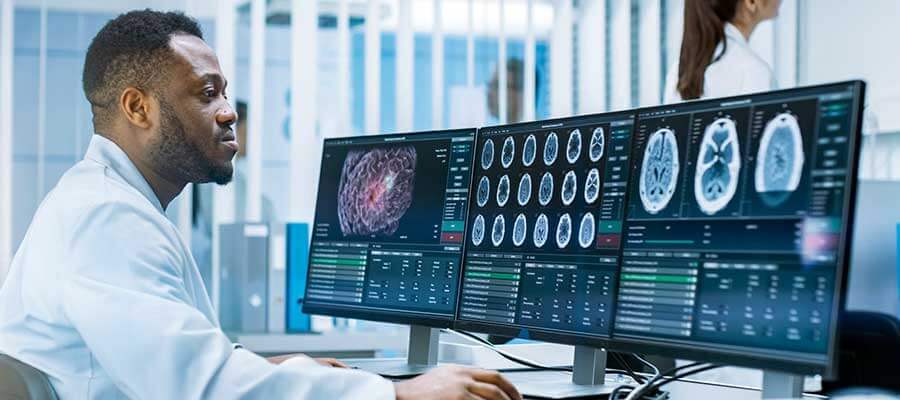Exams and certifications are only part of the journey to becoming an MRI technologist. The truth is, passing the ARRT or ARMRIT test will make you qualified, but it won’t necessarily make you stand out. What sets the best technologists apart are the personal qualities and skills they bring to the role—traits that go beyond what’s taught in class. An MRI program will give you the foundation, but it’s how you combine that training with the right mindset and habits that determines your long-term success.
At its core, this is a career that requires both technical precision and human connection. MRI technologists work directly with patients, many of whom are scared, anxious, or experiencing pain. At the same time, they must master the details of anatomy, imaging technology, and scan protocols to ensure accurate results. It’s this unique blend of compassion and focus that makes the profession so rewarding—and why certain skills are absolutely essential.
Core Qualities Every MRI Technologist Needs
One of the most important skills you’ll rely on every day is communication. For many patients, an MRI scan is unfamiliar and intimidating. A good technologist doesn’t simply guide them to the table and begin the procedure—they take the time to explain what’s going to happen, answer questions, and ease fears. This calm presence helps patients stay still and relaxed, which in turn leads to clearer images and better diagnoses.
Attention to detail is another trait that separates strong technologists from average ones. Doctors order MRIs because they suspect something important, and accuracy is critical. Following instructions closely, double-checking protocols, and positioning patients correctly all require a sharp eye and a careful mindset. In many ways, the quality of the scan depends as much on the technologist’s diligence as it does on the machine itself.
Of course, you can’t ignore the technical side of the role. MRI programs teach you how scanners work, how to operate them safely, and how to use contrast agents when needed. But success means more than just pushing buttons—it’s about understanding the science behind the images and adjusting for each patient’s unique situation. A strong grasp of anatomy and physiology allows you to anticipate what doctors need and deliver the clearest possible results.
Physical fitness also plays a role. While this job isn’t as physically demanding as nursing or emergency medicine, it does require long hours on your feet and occasional lifting or repositioning of patients. Being in good physical condition helps you handle the pace of the job without burning out. Just as you care for your patients, you also need to care for yourself to stay effective in the role.
Preparing for a Career That Blends Skill and Compassion
Completing your coursework and clinical training is just the first step. From there, developing these personal qualities—communication, attention to detail, technical mastery, and physical stamina—will help you move from being simply qualified to truly outstanding. They are the qualities that patients remember, that physicians rely on, and that employers look for when building their teams.
At the end of the day, excelling as an MRI technologist is about more than passing exams. It’s about bringing the right mix of knowledge, empathy, and professionalism to every scan. By enrolling in an MRI program and committing yourself to developing these additional skills, you’ll not only prepare for certification—you’ll prepare for a fulfilling, respected career in healthcare.
If you’re ready to start building that foundation, Pulse Radiology Institute offers accredited programs designed to give you both the technical training and the confidence to succeed. With flexible learning options and clinical partnerships, we’ll help you gain the expertise and qualities that set great MRI technologists apart.





